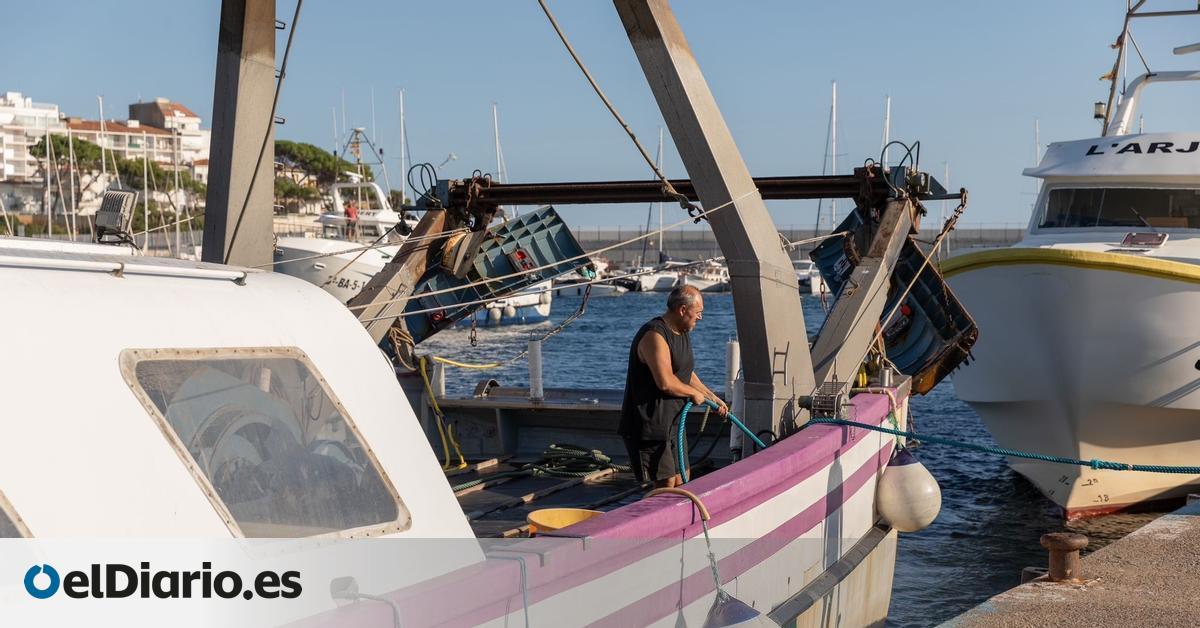
The Fisheries Ministers of the European Union have unanimously reached an agreement in the early hours of this Wednesday: trawler fishermen in the Mediterranean will be able to fish “almost the same days” as before if they do so in a sustainable way. The pact includes measures to cushion the proposal to cut this type of fishing by the European Commission, which wanted to reduce fishing days by 79%, to an average of 27 days of work.
The agreement was reached after two days of meeting in Brussels, marked by Spain’s opposition to the cut in fishing days in the Mediterranean that had been proposed at the end of November.
The negotiations included an agreement for the distribution of fishing in the Atlantic and the North Sea by 2025 and for fishing opportunities in the Black Sea and the Mediterranean, which has focused the negotiating efforts of the ministers to guarantee the survival of the trawl fleet that operates in the area.
“The agreement reached today in the Agriculture and Fisheries Council (of the EU) will allow fish stocks to be maintained at sustainable levels and protect the marine environment, while also considering the viability of the sector,” wrote the Hungarian presidency of the Council. of the European Union in his profile on the social network X.
In a statement, the Council specified that “with regard to the Western Mediterranean, the ministers agreed to reduce the fishing effort of trawlers by 66% in Spanish and French waters and by 38% in French and Italian waters to protect the populations.” demersal, also taking into account the socioeconomic impact on the fleets.”
“The negotiations have been long and complex on the Western Mediterranean,” acknowledged the new EU Fisheries Commissioner, Costas Kadis, at a press conference at the end of the meeting.
The commissioner stressed that it was important for him to achieve a “balanced and responsible” agreement, which is why he has done “everything possible” to use “all the flexibilities allowed by the legal framework” to guarantee the balance between social and economic considerations. and environmental.
In that sense, he explained that fishermen can benefit from a “substantial” increase in the number of days they go out to sea to fish “if they commit to selectivity” (the ability of fishing methods to select the desired fish and sizes ), with the closure of sea areas to fishing and with the use of “innovative” fishing instruments.
As an example, he said that if a boat uses 15 millimeter meshes under certain conditions it can receive 50% more days of fishing. He indicated that the compensation mechanism includes a total of twelve measures like that. He added that these twelve measures can be accumulated and that if a boat uses all of them it can fish “the same days or almost the same days that it fished this year.”
He explained that there will also be financing from the European Maritime, Fisheries and Aquaculture Fund “so that fishermen can request these measures.”
He stated that the Mediterranean agreement “addresses fishing mortality, which is still too high, preserves the livelihoods of fishermen in the long term and improves opportunities for the recovery of stocks” of fish.
Spain defends the “good result” of the agreement
The Spanish Minister of Fisheries, Luis Planas, highlighted this Wednesday the “good result” that the agreement represents for Spain. Planas stressed that in Mediterranean waters the fleet will be able to go out to sea on the same days as in 2024 if the measures of the agreed compensation mechanism are applied. “I think that Spain obtains good results in the Atlantic and Mediterranean,” he said at a press conference.
Planas assured that in the pact closed last night it has been possible to “neutralize” the 79% decrease in the fishing days of the Spanish Mediterranean fleet proposed by the Community Executive “which would have reduced the number of working days of our fleet to 25.” a year and “would have made it absolutely unviable.”
Planas spoke today of “two measures regarding meshes (nets), three measures regarding closed seasons (closure of fishing in areas of the sea) and one related to flying doors.” He explained that “only” the sum of two of these measures, in reference to the establishment of 45-millimeter meshes for coastal fishing and 50-millimeter meshes for the entire deep-sea fishing fleet, would allow 80% of days to be recovered. fishing. In this way, the decrease in fishing days proposed by the EC would be neutralized.
The meshes for coastal fishing would allow 30% of fishing days to be recovered and those for deep sea fishing, 50%, “in the event that 100% of the fleet adopts the measure.” “In practical terms, our fishermen will be able to have the same days of work in the Mediterranean in 2025 as they had in 2024. I think this is great news, because it allows us to continue fishing activity in the Mediterranean,” he commented.
Planas assured that work will be done on the implementation of these technical selectivity measures and that the European Commission has already been consulted about “the possibility of carrying out some of them from community funds, from the European Maritime Fund, Fishing and Aquaculture”. He assumed that the implementation of these measures is “complicated.”
Source: www.eldiario.es
